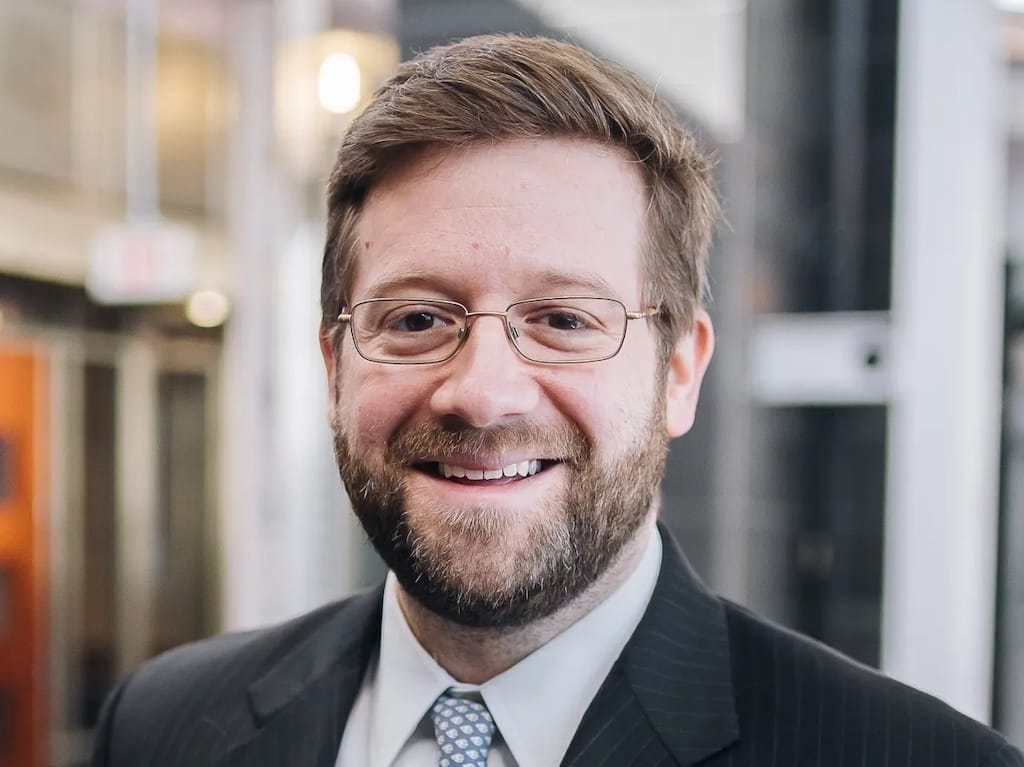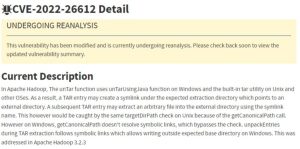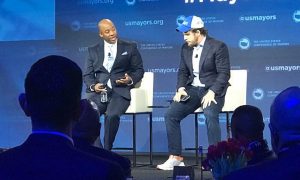
Pole attachment
‘There are equities on both sides of this and we got to recognize that,’ NTIA deputy says

 Photo of Evan Feinman, deputy associate administrator of the BEAD program at NTIA
Photo of Evan Feinman, deputy associate administrator of the BEAD program at NTIA
WASHINGTON, June 13, 2024 – When it comes to attachment disputes between pole owners and broadband providers, it is far from a “good guy, bad guy” situation.
That was the message of Evan Feinman, deputy associate administrator for Broadband Equity, Access, and Deployment at the National Telecommunications and Information Administration during a Thursday panel here hosted by the Schools, Health and Libraries Broadband Coalition.
Feinman offered a defense of pole owner business practices and called for mutual cooperation.
“There are equities on both sides of this and we got to recognize that,” Feinman said.
ISPs trying to deploy broadband have criticized pole owners for slowing them down. Frustrations include delays in processing attachment orders, avoiding pole repairs and resisting make-ready policies.
Responding to reports of skyrocketing pole attachment rates, Feinman reminded the audience of industry leaders that attachment requests have increased dramatically in the wake of multiple federally funded infrastructure programs.
Feinman acknowledged that some price hikes on the part of pole owners have been opportunistic, but he said that the demand brought about by increased network deployment has put pressure on the whole industry.
“There are going to be a tremendous number of… poles that are going to be attached and a tremendous number of disputes over these events over the next five years,” Feinman said.
The BEAD program includes $42.45 billion in broadband deployment grant money.
Feinman encouraged broadband providers to engage with state legislators on “common sense” solutions for permitting issues, but also advised that they address pole owners’ concerns and commercial limitations. Feinman recommended that providers make concessions when necessary to facilitate speedy and equitable solutions.
“The greater amount of [cooperation] that can happen… the better it will be for everyone, even if what that means is people are willing to let some things go in the wash,” said Feinman, meaning he wanted to see cooperation.


